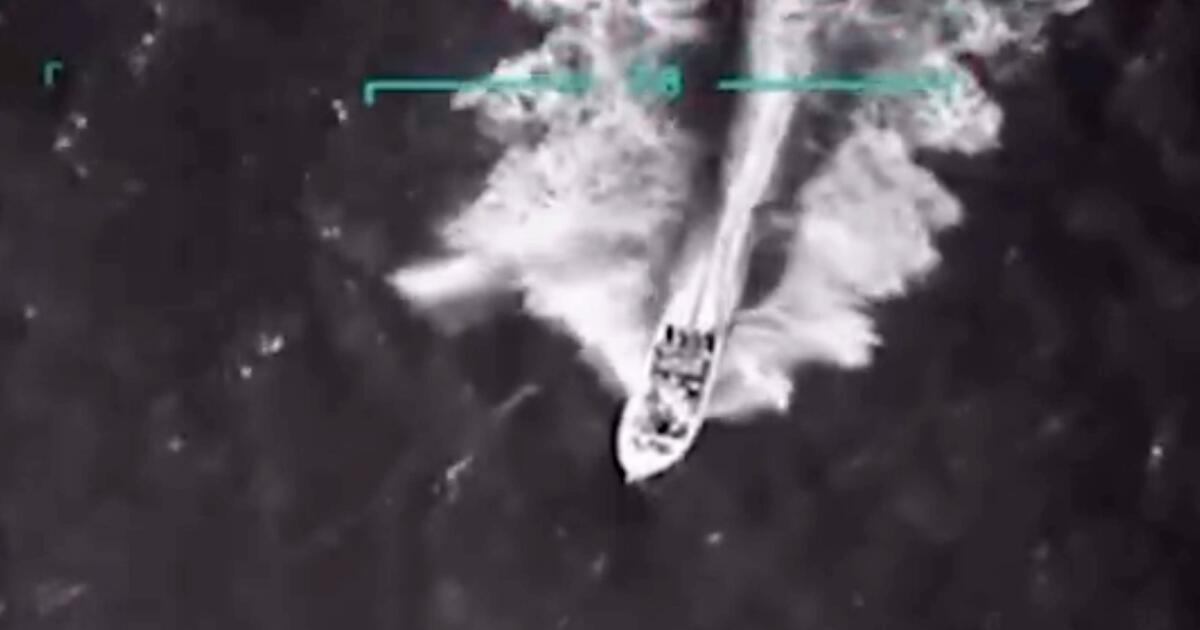U.S. Military Strikes Venezuelan Drug Gang in Caribbean, Killing 11; Tensions Flare with Caracas
U.S. Military Strikes Venezuelan Drug Gang in Caribbean, Killing 11; Tensions Flare with Caracas

In a significant escalation of the Trump administration’s anti-drug efforts, U.S. military forces conducted an inaugural “kinetic strike” in international waters of the Caribbean Sea this Tuesday, destroying a vessel and killing 11 alleged drug traffickers. Officials identified those on board as members of the Venezuelan gang Tren de Aragua, which President Trump recently designated a foreign terrorist organization.
The operation, which utilized advanced F-35 fighter jets, marks the latest instance of the Trump administration employing disproportionate military force to combat drug trafficking, a strategy previously seen in domestic deployments to U.S. cities. Secretary of State and National Security Advisor Marco Rubio, speaking from the region on Thursday, affirmed the continuation of this aggressive stance, stating that regional governments would assist in locating and neutralizing such targets.
The strike has ignited immediate tensions with Venezuela. President Nicolás Maduro warned that the action signals a U.S. intent for regime change in Caracas. On Thursday night, Venezuelan military aircraft reportedly flew near a U.S. vessel in international waters, prompting a swift and stern response from the Pentagon and a directive from President Trump to Defense Secretary Pete Hegseth to respond as he deems fit.
While the administration justifies these actions by linking Maduro to drug trafficking and designating cartels as terrorist entities, experts question the efficacy and implications of such a militarized approach. Critics highlight the lack of traditional law enforcement training for U.S. service members and warn that this strategy risks militarizing the drug trade further and could set a dangerous precedent for other nations to use military force in international waters.
Despite the administration’s focus on the Caribbean, some analysts point out that most drugs enter the U.S. from South America via the Pacific and through more sophisticated means than dinghies. The current administration’s move is seen by some as a performative attack on the Venezuelan regime rather than a rigorously analyzed drug policy, potentially leading to unforeseen conflicts in an already unstable region.
Disclaimer: This content is aggregated from public sources online. Please verify information independently. If you believe your rights have been infringed, contact us for removal.